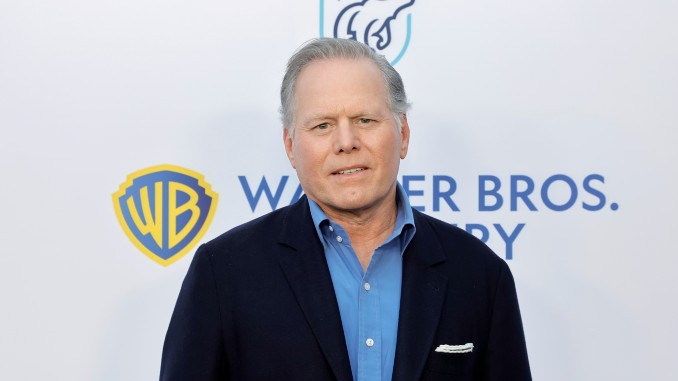GQ Sells Warner Bros. Discovery CEO David Zaslav Its Integrity
Photo by Kevin Winter/Getty Images
On Monday, GQ published an article by film critic Jason Bailey. It was about Warner. Bros. Discovery CEO David Zaslav and how everyone in the film industry seems to hate him. The headline, with its mention of him being “public enemy number one” was similar to that of a piece I wrote for Paste last year. Bailey’s story was full of just, well-argued, fully backed-up disgust with how Zaslav has run the company. A few hours after it went up, it had been substantially rewritten by someone else. By Monday afternoon, it was gone.
In the last twelve or so months, the entertainment world has formed an even more negative opinion of Zaslav, whose tactics have seemed designed to alienate and infuriate everyone but the most cynical of stockholders. He’s mangled HBO Max, pulling films and shows from the service to pinch residual pennies away from those that made them. He’s decimated Turner Classic Movies, pissing off Martin Scorsese, Steven Spielberg and Paul Thomas Anderson. He’s banished movies to the shadow realm, never to see the light of day, so that WBD can save a little on their taxes.
This is all to say, there’s ample ammunition to use against Zaslav and, as someone who just raked in a few hundred million dollars for his part in the WB-Discovery merger, he’s a big enough target to weather some criticism. Or so you’d think.
But no, a thin-skinned lackey (or perhaps the thin-skinned Zaslav himself) complained to GQ shortly after Bailey’s piece went up. GQ—with the backbone and journalistic integrity of its owners, the Newhouse family (which also owns 8.16% of WBD; Steven O. Newhouse is on its board of directors), and editor-in-chief Will Welch (currently producing a movie at Warner Bros.)—immediately put tongue to boot. With conflicts of interest as blatant as those, why wouldn’t they?
The ending of Bailey’s story, which compared Zaslav (quite effectively) to Succession‘s Logan Roy and Pretty Woman‘s Edward Lewis, was scrapped. A searing finale, “He’s out here carrying on like a mogul, but based on his performance to date, he’s only good at breaking things,” was replaced with milquetoast ass-kissing: “Fair or not, with Zaslav, the criticism has gotten personal.”
“Fair or not?”
You can understand why Bailey, who declined GQ’s proposal to revise the already published article, wanted his name removed from the heavily rewritten piece—one that now seemed to cowardly reverse positions at the very end. He was hired to write a piece of criticism. Like most people, Zaslav didn’t like being criticized. Unlike most reputable outlets, GQ valued the subject of the story over their writer. That sort of defeats the purpose of hiring someone to write criticism, and WBD already has a publicity team.
Rather than remove the byline, GQ removed the piece altogether. Poof, vanished.
-

-

-

-

-

-

-

-

-

-

-

-

-

-

-

-

-

-

-

-

-

-

-

-

-

-

-

-

-

-

-

-

-

-

-

-

-

-

-

-








































